| Vintage Pulp | Apr 8 2023 |

When civilized men want anything, the uncivilized answer should always be no.
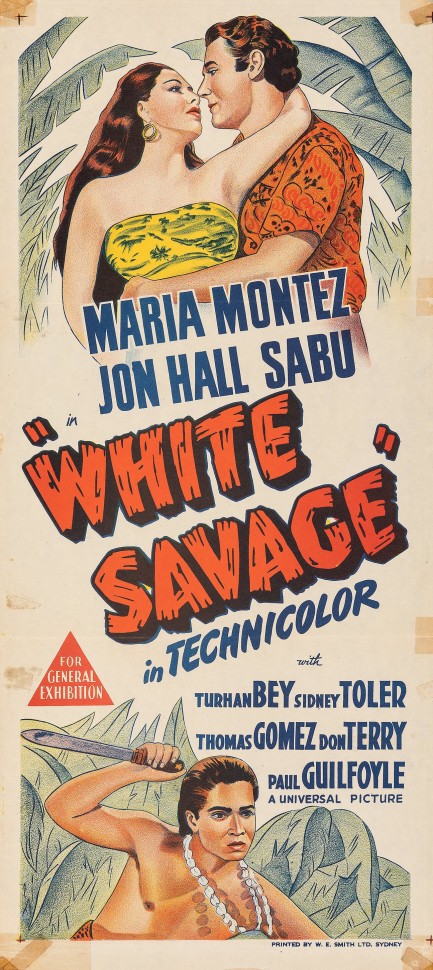
We knew we were in trouble about three minutes into White Savage, a movie that quickly revealed itself to be a bad hybrid of South Seas adventure and light romance. It features Dominican actress Maria Montez as the ruler of a Polynesian paradise called Temple Island that is coveted by two men. Good guy John Hall wants fishing rights to hunt sharks, while bad guy Thomas Gomez wants to steal the island's legendary treasure, which resides on the bottom of a sacred pool. Montez isn't keen on giving either man access, but she may not have a choice—she's liable to be betrayed by her brother, who's deeply in debt and willing to sell off their father's ancient land.
The movie features stalky, presumptuous male attitudes toward Montez, casts numerous bit players and extras in shoe polish, and features as an important character Charlie Chan portayer Sidney Toler in full inscrutable Asian mode, dispensing aphorisms for every occasion. In addition to these dubious aspects, almost the entire first half of the movie unspools to a highly annoying soundtrack of trilling flutes that are supposed to sound vaguely islandish. Don't get us wrong—we understand that the movie is meant to be largely lighthearted, but you know how to get future viewers to overlook flaws? Be a good movie. Excellence will buy a lot of forbearance. There's not much excellence in White Savage.
Are there any positives? Several. Montez is lovely. There's a tense, high stakes poker sequence that's a cut above average and shows that—similar to that old line from cowboy movies—white man not only speaks with forked tongue, but also plays with forked deck. Also positive, there's an outdoor island dance featuring some incredibly fit bodies of both sexes—we're talking co-ed six packs as far as the eye can see. And finally, because the movie is relentlessly dumb, if you're in the right frame of mind it can be funny. Otherwise, White Savage is just a throwaway wartime adventure set in the exotic Pacific islands, filmed in Los Angeles and environs, that takes viewers nowhere. It premiered in the U.S. today in 1943.
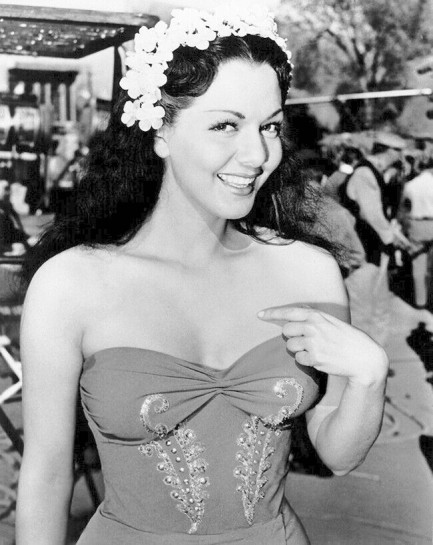
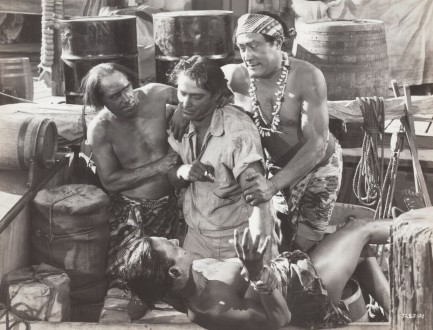
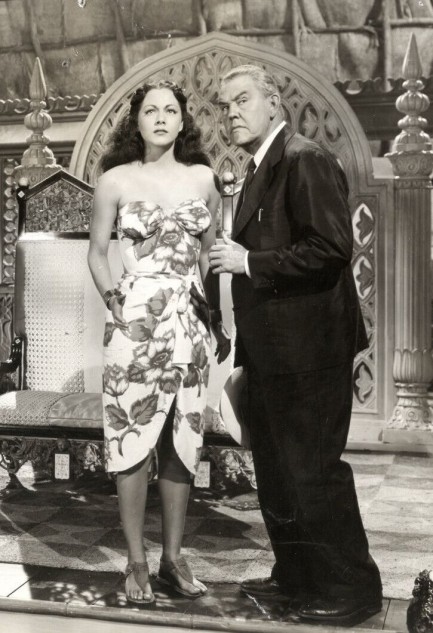
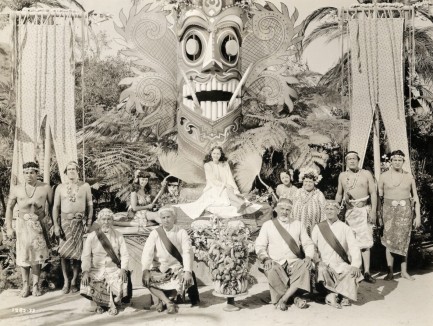
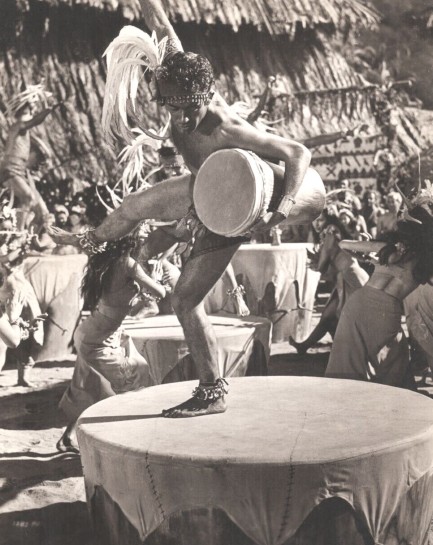
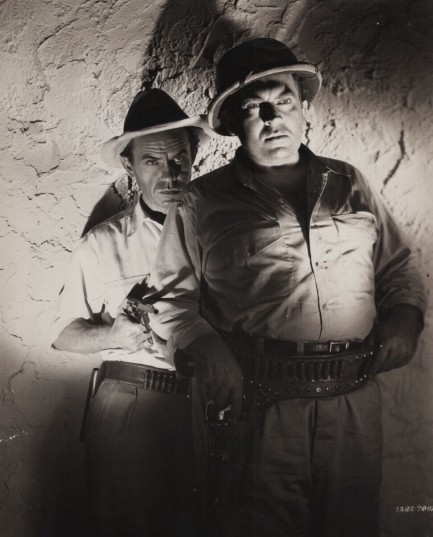
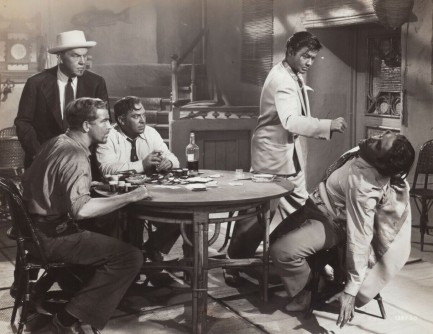
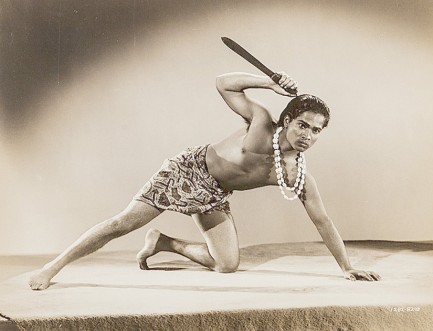
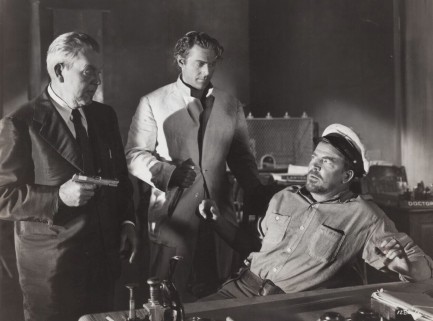
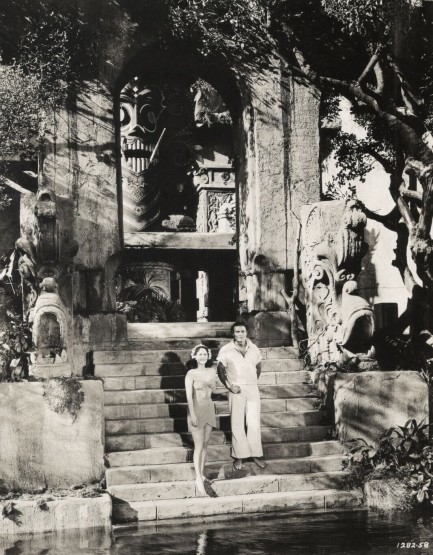
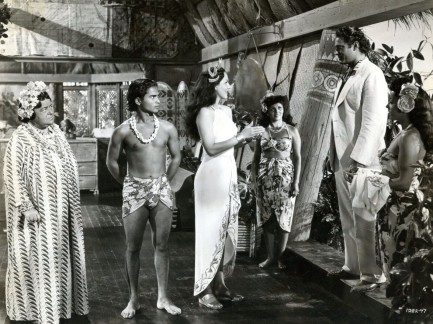

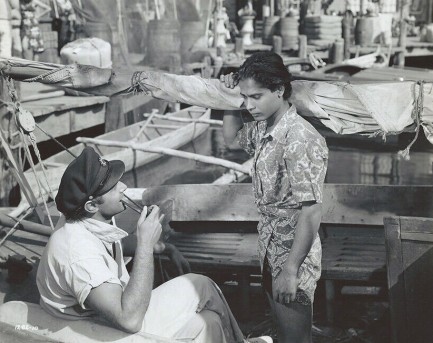
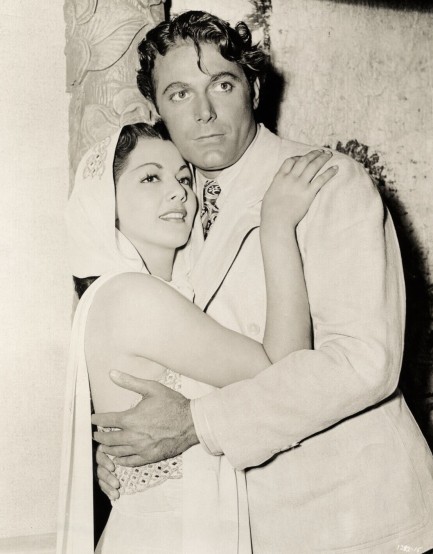
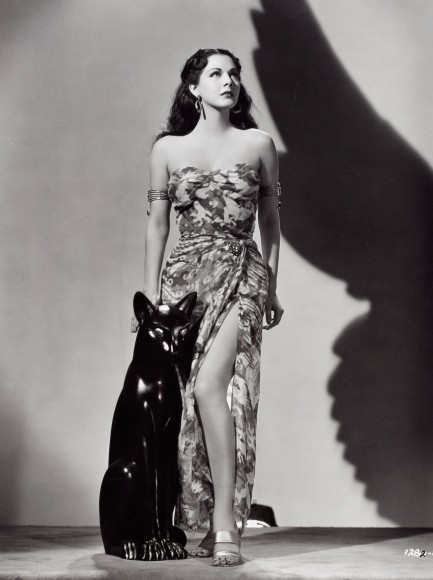
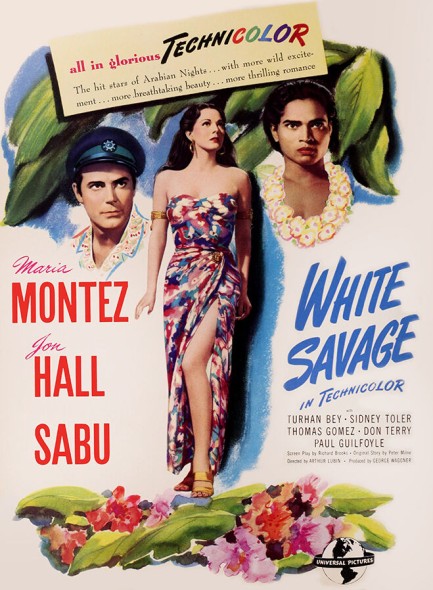
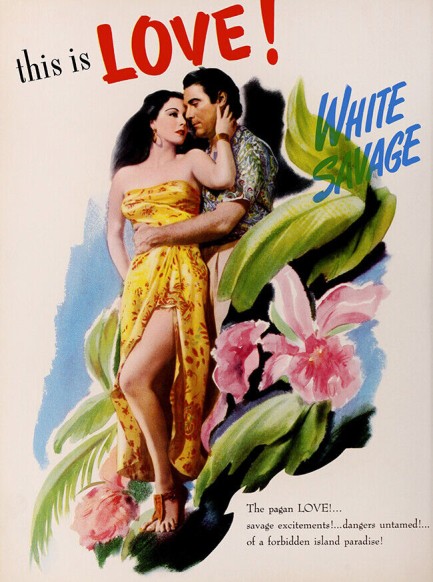
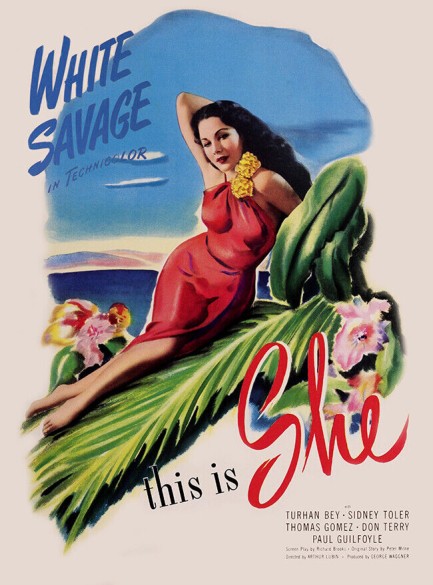


















| Vintage Pulp | Oct 23 2019 |

Original comedy-thriller concept wrapped in favor of something darker.
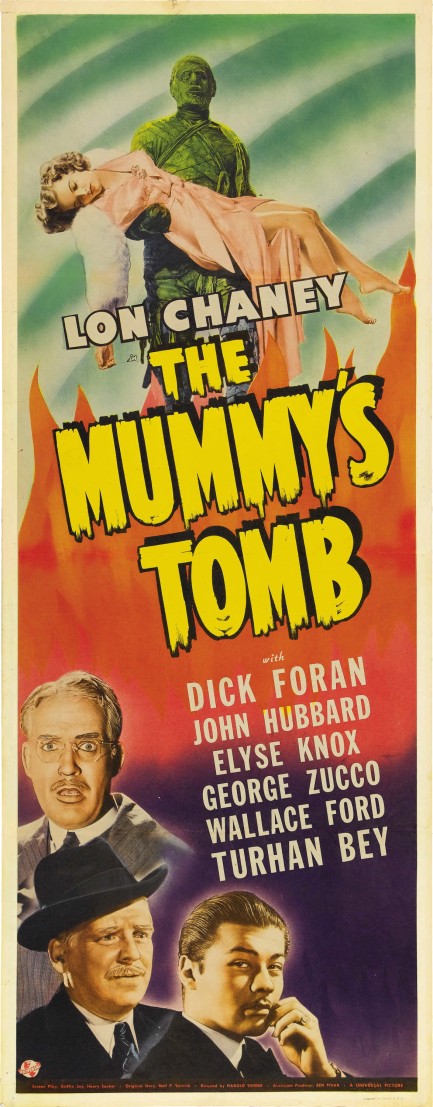
When we stumbled across The Mummy's Hand a while back, we were amused and charmed by the film. So naturally we went straight for the follow-up, The Mummy's Tomb, for which you a promo poster above. Sadly, this movie proves that Hollywood has always been terrible with sequels. The humor and charm of Hand is gone. Instead the filmmakers go for straight horror, having disposed of two of the four main characters from Hand before the story even opens, and rudely dispatching the other two after minimal participation. Were there contract troubles? Scheduling difficulties? Did the stars demand raises? If so, the mummy took care of the negotiations by killing the offending parties, but along the way the movie got embalmed. And we were so looking forward to seeing the original characters from The Mummy's Hand in a series of light thrillers. No such luck. Our guess—unsupported by any evidence—is that because Lon Chaney, Jr. was a breakout star and had been brought aboard for this film, the suits decided make the mummy central rather than ancillary, as he had been in Hand. Chaney's Mummy entries were successful, but most reviews rate the Chaneyless original as the best of the group. We agree. The Mummy's Tomb premiered in the U.S. today in 1942.
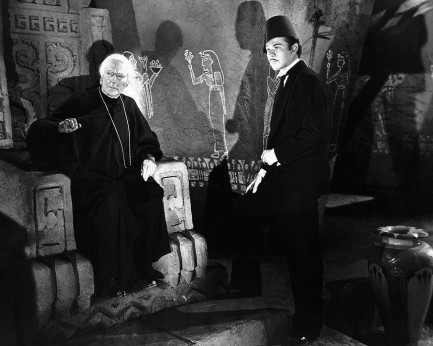
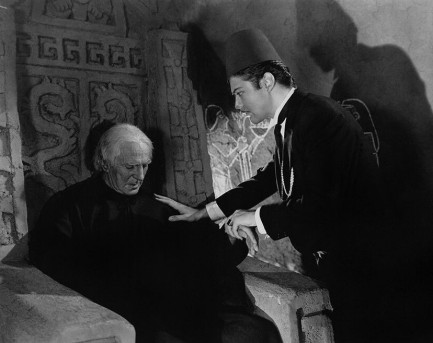
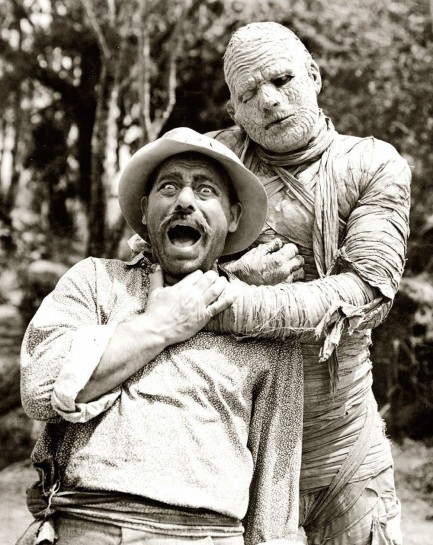
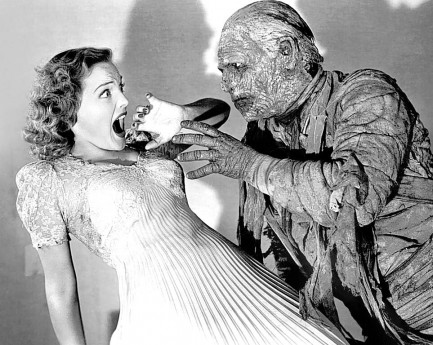
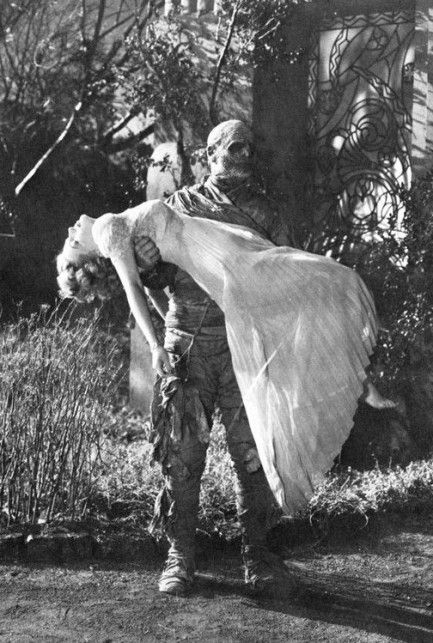
| Vintage Pulp | Jul 29 2019 |

Mysterious spiritualist can see everyone's future but his own.
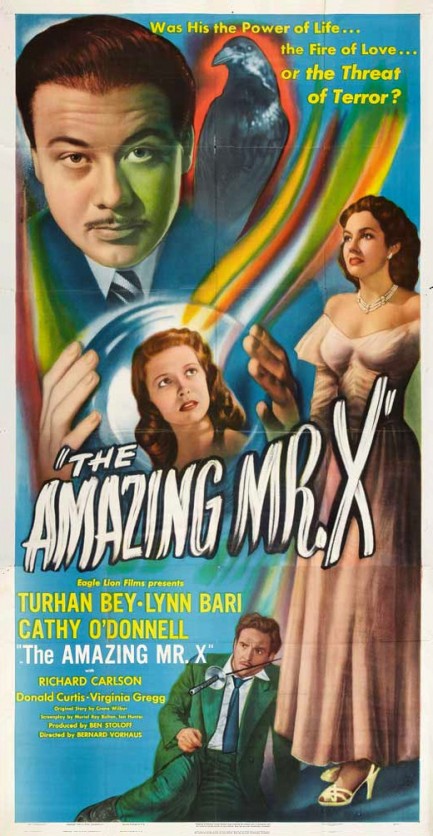
For a moment Austrian born, Turkish descended actor Turhan Bey was a star, a status he achieved through a long, careful slog through numerous supporting film roles beginning in 1941. The Amazing Mr. X, aka The Spiritualist, is a movie that's his. He receives a rare top billing, and in playing a suave, mysterious seer of the future who hails from unknown shores, acts a part seemingly written for him.
Bey uses his psychic powers to warn rich widow Lynn Bari against remarrying. He's a phony, of course, but his performance is enough to hook Bari, who indeed begins to have second thoughts about tying the knot. When Bey claims he can contact her dead husband she jumps at the opportunity. A few cheap special effects convince her she's really contacted the netherworld. And of course we soon learn that Bey and his partner are doing all this to fleece Bari of her fortune.
If Bey were a real medium he'd know complications will arise. What kind? Serious and unexpected ones that snare him in a plot not of his own devising. Despite the twists, The Amazing Mr. X is murky and lacking in subtlety, and parts of it come across as comedy, so it's no surprise it wasn't the breakthrough hit Bey desired. Today it's a public domain movie available as a low quality television rip, and seems to be nearly forgotten.
It premiered in the U.S. today in 1948, and soon afterward Bey's career began slipping off the rails. He made only three movies in the next five years, then found himself back in Austria working as a photographer. His Hollywood moment had passed, though he'd return during the 1990s and score some television roles. But even if The Amazing Mr. X isn't great, in watching the cool and exotic Bey we understood why Hollywood wanted to make him a star.
It premiered in the U.S. today in 1948, and soon afterward Bey's career began slipping off the rails. He made only three movies in the next five years, then found himself back in Austria working as a photographer. His Hollywood moment had passed, though he'd return during the 1990s and score some television roles. But even if The Amazing Mr. X isn't great, in watching the cool and exotic Bey we understood why Hollywood wanted to make him a star.
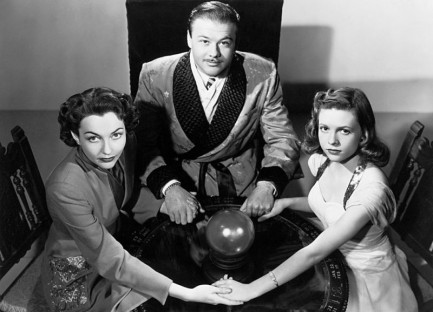
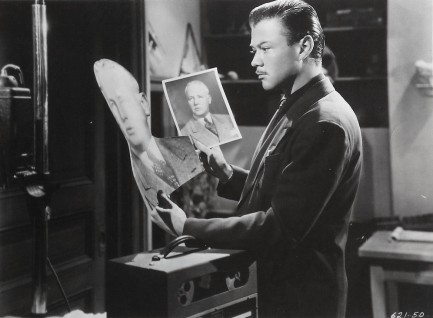
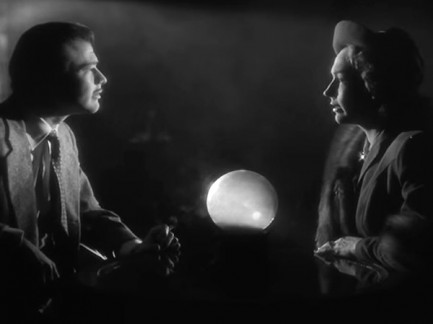
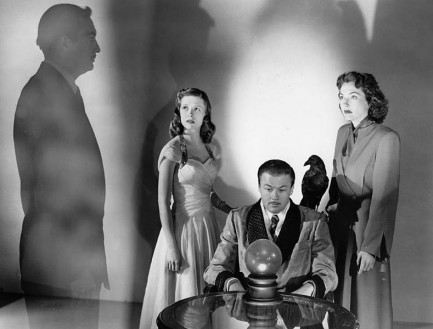
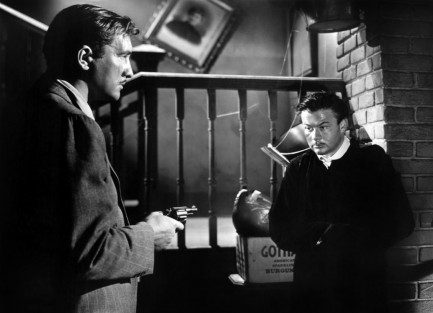
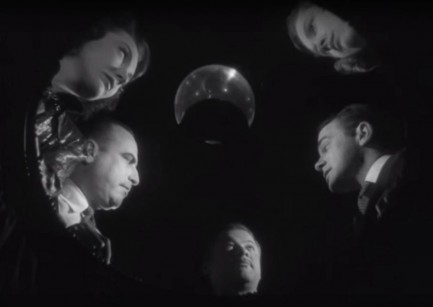
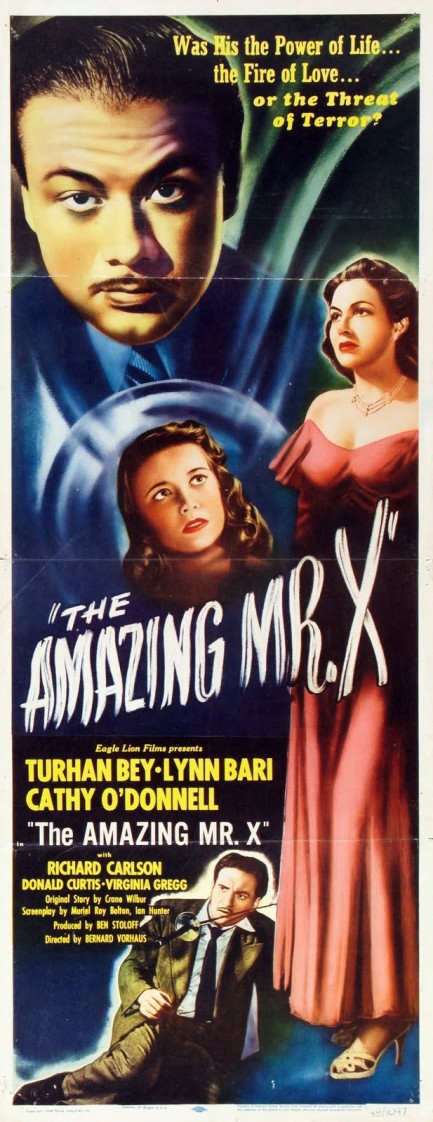
| Vintage Pulp | Apr 21 2012 |

And now I'll demonstrate proper fingering technique.
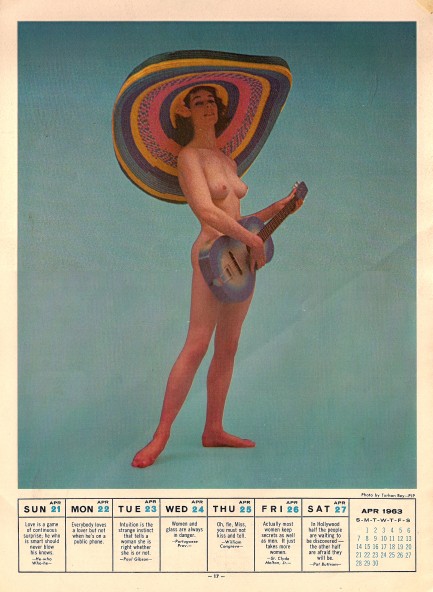
The Good Time Weekly Calendar of 1963 offers up an excellent Mexican-themed image for the week beginning April 21. We don’t know the model, but the photographer is identified as Turhan Bey. The name sounded familiar, so we looked him up and found that before he stepped behind the lens he was an actor known as The Turkish Delight. His career began in 1941, and he appeared in many movies, but that wasn't why he sounded familiar. He sounded familiar because he appeared on television as recently as 1998 in a recurring role on the sci-fi series Babylon 5. It was in the mid-1950s that Bey decided to try his hand at photography, and we can't argue with the results.
This week's quips come from some of the usual suspects, but also include an observation from 15th century playwright William Congreve. In Congreve the folks at Good Time Weekly have finally chosen a wit worthy of respect. Congreve not only popularized the expression “kiss and tell,” but also originated the lines, “Music has charms to soothe a savage breast,” and “Heaven has no rage like love to hatred turned, nor hell a fury like a woman scorned.” But our favorite Congreve is this one: “Uncertainty and expectation are the joys of life. Security is an insipid thing.” We remind ourselves of that every moment we go without internet service. But insipid security looms, finally—we’re told service will be established in our new place within seven days.
April 21: “Love is a game of continuous surprise; he who is smart should never blow his knows.”—He-who Who-he
April 22: Everybody loves a lover but not when he’s on a public phone.
April 23: “Intuition is the strange instinct that tells a woman she is right whether she is or not.”—Paul Gibson
April 24: Women and glass are always in danger.—Portuguese Prov.
April 25: “Oh, fie, Miss, you must not kiss and tell.”—William Congreve
April 26: “Actually, most women keep secrets as well as men. It just takes more women.”—St. Clyde Melton, Jr.
April 27: “In Hollywood half the people are waiting to be discovered—the other half are afraid they will be.”—Pat Buttram.




































































